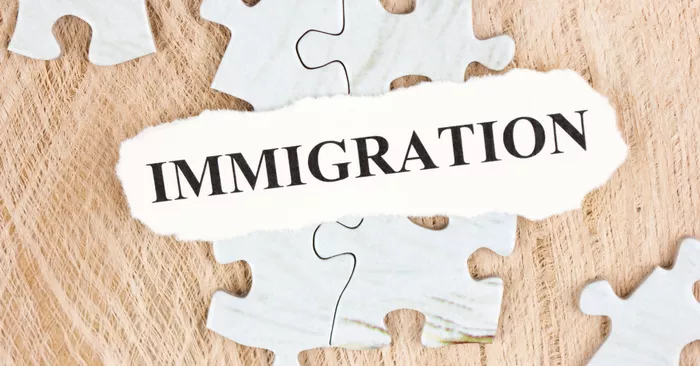Illegal immigration remains a contentious issue in many countries, triggering debates on various fronts, from economics to national security and social cohesion. While immigration itself is a complex and multifaceted phenomenon, illegal immigration, in particular, poses a range of challenges for both the destination country and the migrants themselves. In this article, we delve into the problems caused by illegal immigration, examining its effects on economies, social structures, public services, and national security.
Economic Strain and Labor Market Disruption
One of the primary concerns associated with illegal immigration is its impact on the economy of the host country. The influx of undocumented workers often exerts downward pressure on wages, especially in sectors that rely heavily on low-skilled labor. This can result in wage stagnation or even reduction for native-born workers and legal immigrants competing in the same job markets. Additionally, illegal immigrants may be vulnerable to exploitation by unscrupulous employers who offer substandard wages and working conditions, further exacerbating the downward pressure on labor standards.
Moreover, illegal immigrants often contribute to the informal economy, where transactions occur outside the purview of government regulation and taxation. This undermines the government’s ability to collect taxes and enforce labor laws, depriving the economy of much-needed revenue and distorting market dynamics. Additionally, the presence of a large undocumented population can strain public services, such as healthcare and education, without commensurate tax contributions, leading to fiscal burdens on taxpayers and budgetary challenges for government authorities.
Social Tensions and Cultural Assimilation
Illegal immigration can also fuel social tensions and give rise to cultural anxieties within host communities. Perceptions of unfair competition for jobs and resources may breed resentment and hostility towards undocumented migrants, leading to social polarization and intergroup conflict. Moreover, concerns about the preservation of national identity and cultural cohesion may be exacerbated by large-scale immigration, especially if the newcomers are perceived as unwilling or unable to assimilate into the host society.
Furthermore, the presence of a sizable illegal immigrant population can strain social services and infrastructure, particularly in areas with high concentrations of undocumented migrants. This may lead to overcrowded schools, overwhelmed healthcare facilities, and increased pressure on housing markets, potentially eroding quality of life for both native-born residents and legal immigrants. Additionally, linguistic and cultural barriers may hinder effective communication and social integration, exacerbating feelings of isolation and marginalization among undocumented migrants and contributing to social fragmentation.
Public Health and Safety Concerns
Illegal immigration also raises public health and safety concerns, both for the migrants themselves and the broader community. Undocumented migrants often lack access to essential healthcare services, leading to untreated medical conditions and increased vulnerability to communicable diseases. Moreover, overcrowded living conditions and limited access to sanitation facilities in immigrant communities can facilitate the spread of infectious diseases, posing risks to public health.
Additionally, the underground nature of illegal immigration can create opportunities for criminal exploitation and human trafficking. Migrants may fall prey to human smugglers who subject them to exploitation, abuse, and extortion during their journey to the destination country. Once arrived, they may become vulnerable to exploitation in the labor market or involvement in illicit activities as a means of survival, further perpetuating cycles of vulnerability and marginalization.
National Security and Border Control
From a national security perspective, illegal immigration raises concerns about border control and homeland security. Porous borders and lax immigration enforcement mechanisms create vulnerabilities that can be exploited by transnational criminal organizations, terrorist groups, and other illicit actors seeking to smuggle contraband, weapons, or individuals across borders. The inability to effectively monitor and regulate the flow of people and goods across borders undermines efforts to maintain law and order and safeguard national sovereignty.
Moreover, the presence of undocumented migrants within the country’s borders complicates efforts to identify and track individuals with nefarious intentions. Without proper documentation and background checks, it becomes challenging for law enforcement agencies to distinguish between law-abiding residents and potential threats to public safety. This can strain law enforcement resources and impede efforts to combat crime and terrorism effectively.
Conclusion
Illegal immigration presents a myriad of problems for destination countries, ranging from economic strain and social tensions to public health risks and national security concerns. Addressing these challenges requires a comprehensive and balanced approach that considers the complex interplay of economic, social, and political factors shaping immigration dynamics. Efforts to enhance border security, enforce immigration laws, and promote legal pathways for migration must be accompanied by measures to address the root causes of unauthorized migration, including poverty, political instability, and lack of opportunities in migrants’ countries of origin. By tackling the underlying drivers of illegal immigration and fostering inclusive and humane immigration policies, societies can strive towards greater prosperity, stability, and solidarity for all.


